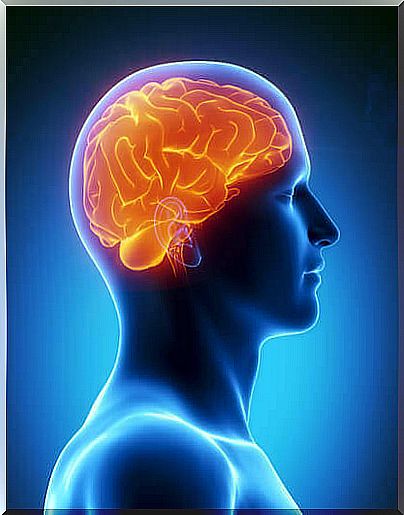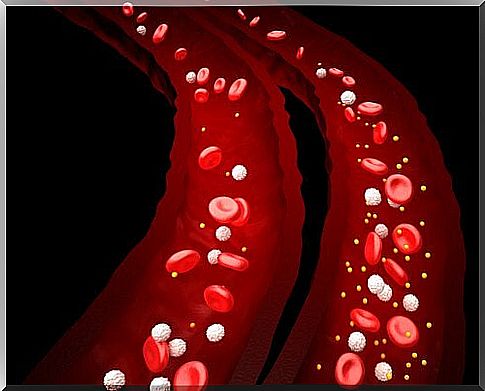Sleep Deprivation Can Lead To Dementia

We all think it won’t go that fast, but there are activities that seriously disrupt our biological clock and can lead to a chronic sleep deprivation.
Experts have long warned us that certain bedtime habits can negatively impact the quality of your sleep, such as:
- Too late and too much food
- Watching TV in the bedroom
- Quickly check your tablet or mobile.
Sleep deprivation and sleep disorders
As you may have already read, prolonged sleep deprivation and sleep disturbances can be the cause of various physical and psychological disorders. A recent study found that lack of sleep and disruption of sleep patterns can lead to brain damage that is very similar to dementia.
A group of researchers from the Veterans Administration in Hawaii collected data from 167 men with a mean age of 86 years. They were followed until their death, for an average of about six years.
They all gave permission to have post-mortem research done that mainly focused on the brain. The researchers then mainly looked for small aneurysms or changes in brain tissue that occur more often in people who suffer from sleep apnea or the lung disease emphysema.
This comprehensive study found that those who suffered from changes in brain tissue structure as a result of oxygen deprivation showed symptoms similar to the early stages of dementia.
Low oxygen levels are associated with brain abnormalities

The results also showed a link between abnormalities in brain tissue. Both low oxygen levels in the blood and problems related to sleep patterns.
The scientists described in their final result that patients who suffered from low oxygen levels in the blood for 77% and 99% of their sleep cycle were up to four times more likely to develop a brain abnormality.
The conclusion was therefore that oxygen deprivation due to sleep disorders can give rise to brain disorders that are very similar to dementia.
The lead of the study, Dr. Rebecca P. Gelber of the Pacific Islands VA Health Care System and the Institute for Pacific Health Research and Education in Honolulu, Hawaii, said the study findings show:
- Sleep problems and oxygen deprivation can contribute to brain damage and also the first signs of dementia.
While acknowledging that further studies are needed to establish the precise link between sleep deprivation and dementia, the study provided interesting data, especially when you consider that in our modern society, more and more people suffer from sleep disorders and sleep deprivation.
The study was published in the medical journal The American Academy of Neurology. It bears the title “Association of Brain Lesions at Autopsy with Polysomnography before Death”.
It contains important information about sleep patterns and desired length of sleep, data on oxygen saturation in the blood and the how and why of sleep apnea.
What causes low oxygen in the blood?

The examination can also determine the exact cause of a low oxygen level in the blood:
- The presence of chronic obstructive pulmonary disease (COPD). This is a collective name for lung diseases such as chronic bronchitis, emphysema and asthma.
- The occurrence of anemia or anemia with acute respiratory distress syndrome (ARDS) This is a disease in which the lungs no longer work optimally for various reasons.
- The development of pulmonary fibrosis, a chronic condition in which connective tissue is formed in the lungs. This reduces the ability to absorb oxygen.
- Congenital heart defects.
How can you ensure sufficient oxygen in the blood yourself?

The good news is that you can increase the presence of oxygen in your bloodstream yourself. You can do this by paying attention to what you eat every day.
Foods that are high in fiber and a healthy amount of fruits and vegetables rich in potassium, magnesium and vitamin C will no doubt help you absorb enough oxygen.
Therefore, eat regularly:
- bananas
- Avocados
- Celery and parsley
- All kinds of cabbage
- Spinach
- Orange, lemon and grapefruit
- Cucumber and Zucchini
- Broccoli
- green apples
- Cranberries
So have you started putting these tasty fruits and vegetables on the menu? Then also remember to occasionally move the salt container to the side and use less fat, sugar and refined products in the kitchen.
If you suffer from sleep disorders, don’t be afraid to consult your doctor, who can undoubtedly give you all the useful tips to deal with your sleeping problems. Sleep problems do not only lead to damage to brain tissue, but are also the cause of, among other things:
- exhaustion
- a bad mood
- stress
- Concentration disorders
So don’t wait any longer and use these tips to get a good night’s sleep again and boost the oxygen level in your bloodstream.








